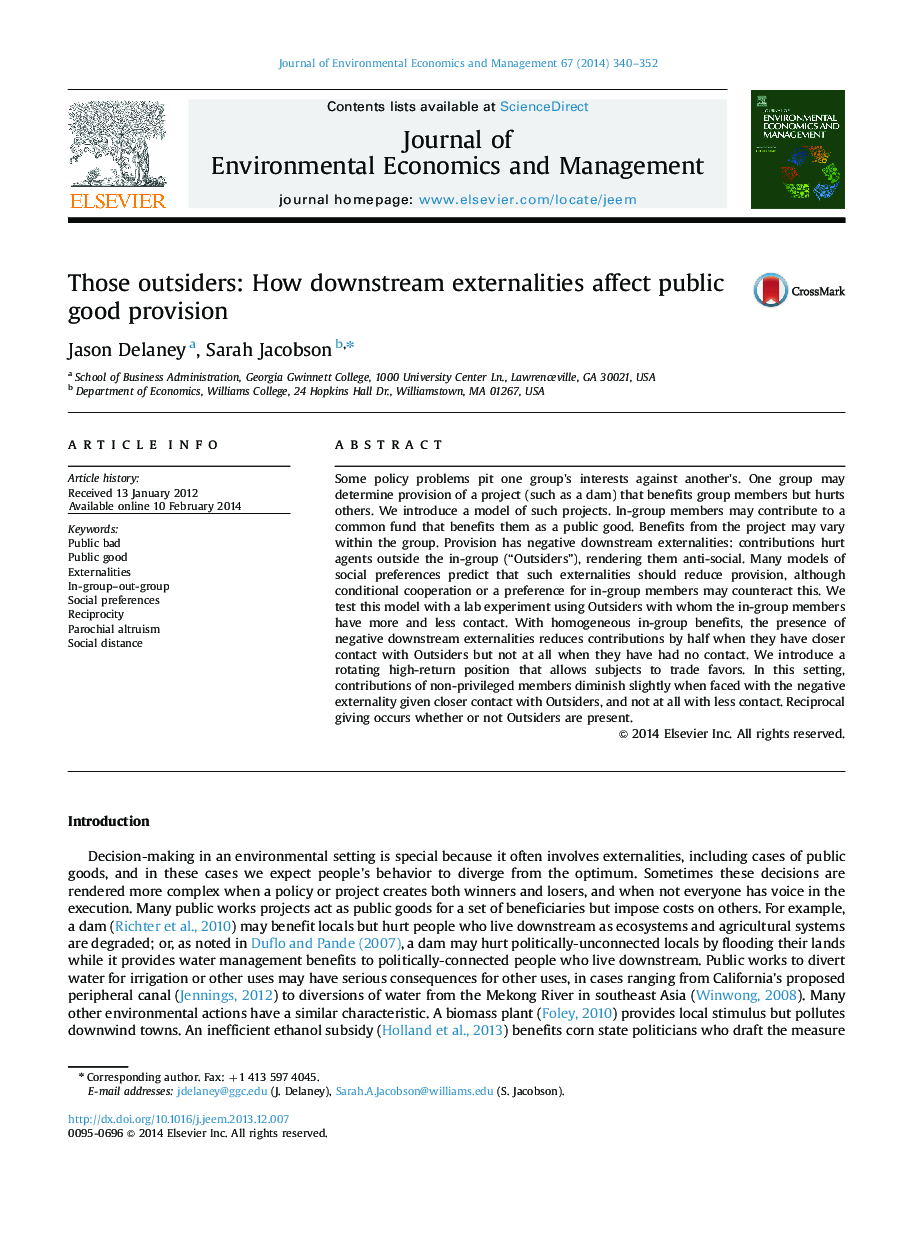| Article ID | Journal | Published Year | Pages | File Type |
|---|---|---|---|---|
| 959166 | Journal of Environmental Economics and Management | 2014 | 13 Pages |
Some policy problems pit one group׳s interests against another׳s. One group may determine provision of a project (such as a dam) that benefits group members but hurts others. We introduce a model of such projects. In-group members may contribute to a common fund that benefits them as a public good. Benefits from the project may vary within the group. Provision has negative downstream externalities: contributions hurt agents outside the in-group (“Outsiders”), rendering them anti-social. Many models of social preferences predict that such externalities should reduce provision, although conditional cooperation or a preference for in-group members may counteract this. We test this model with a lab experiment using Outsiders with whom the in-group members have more and less contact. With homogeneous in-group benefits, the presence of negative downstream externalities reduces contributions by half when they have closer contact with Outsiders but not at all when they have had no contact. We introduce a rotating high-return position that allows subjects to trade favors. In this setting, contributions of non-privileged members diminish slightly when faced with the negative externality given closer contact with Outsiders, and not at all with less contact. Reciprocal giving occurs whether or not Outsiders are present.
